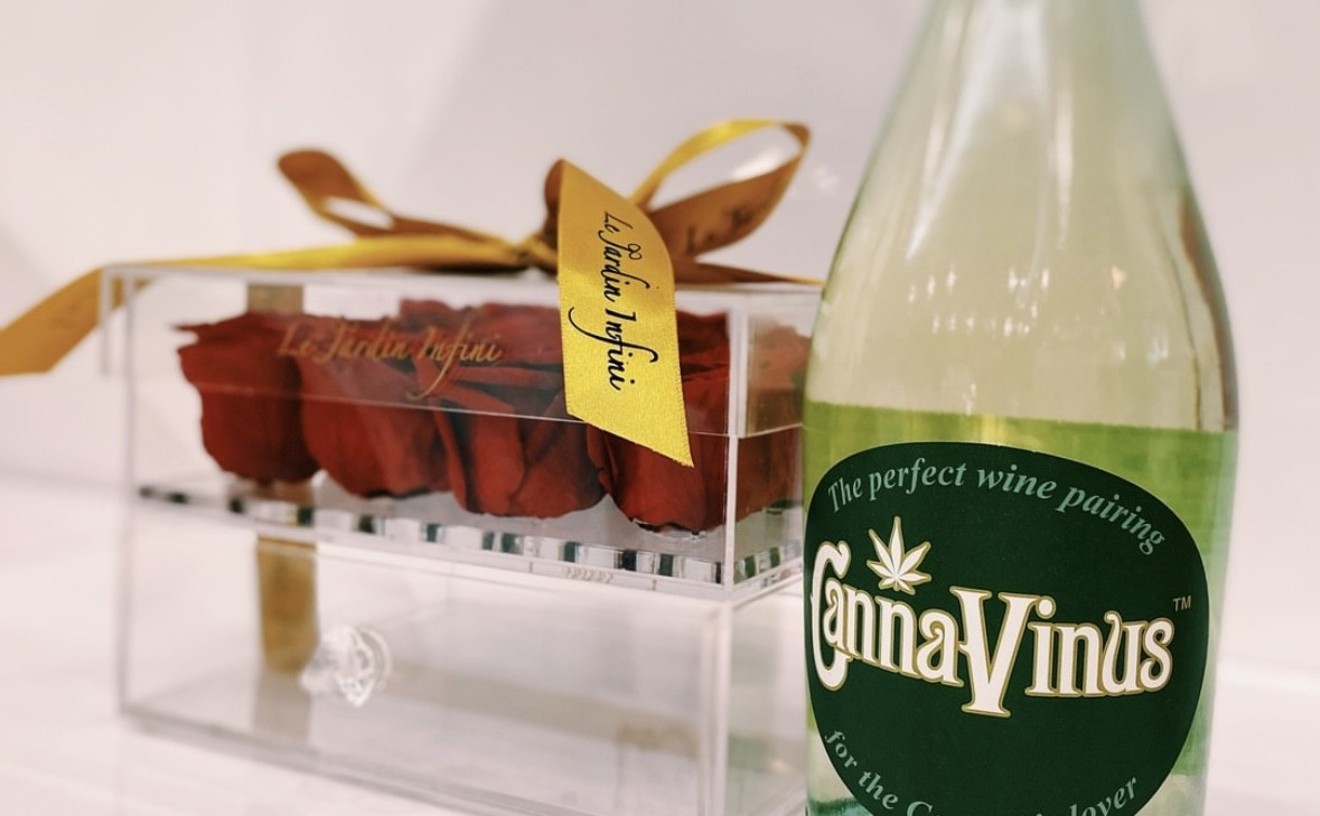But for top-of-the-line Central American comfort food, you can't help feeling the world's your ostra when you take a bite of the Salvadoran pupusa.
Pupusas are to El Salvador what tortillas are to Mexico and arepas are to Colombia and Venezuela. Like those culinary cousins, they make a wickedly satisfying vehicle for conveying the flavors of mildly seasoned stuffings of meats, cheese, potatoes, or vegetables.
And they're a snap to make. Put any of those ingredients into the center of a corn pancake. Lay the pancake on a grill, turn once, and continue cooking until speckled and puffed. Pile on a bit of sour cold slaw, insert in mouth, and sit back.
Salvadoreños eat these patties on all occasions, but there's special fervor around Independence Day (September 15), when revolutionary leader Jose Matias Delgado helped bring an end to 300 years of Spanish rule in 1821.
So, in honor of that day, it seemed appropriate to go on a recent pupusa quest. And what better place to start than Atlakat, a 10-year-old Pembroke Pines fixture? (For purists, there aren't many local options. Despite South Florida's growing number of Salvadoreños, local restaurants usually prefer to widen their appeal by mixing Central American cuisines with Mexican or Cuban.)
Though the restaurant goes by the name "Atlakat," I was originally introduced to it as "Atlacatl,"a Mayan word the meaning of which remains a mystery. I do know that "Atlacatl" also happens to be the name of an infamous counterinsurgency battalion created by the U.S. government during the early 1980s and responsible for El Mozote, perhaps the worst massacre in modern Latin American history.
To be fair, it's also a common name for other Salvadoran restaurants in the U.S. And owner Manuel Chavez has never taken a public stance on these events of his country's history.
But he has created a kitchen that has been turning out some fine pupusas for a long time. Located on Pembroke Pines' Taft Street is Chavez's 100-seat restaurant, which is next to a mental health clinic. Entering the two rooms with white walls and mounted TV tuned to a soap opera, I had the same Eureka!-like feeling I had when I once entered a café in a country town near the coast of Venezuela. The sit-anywhere atmosphere, the come-as-you-are dress code, the children hanging out at the counter at the back, the takeout crowd waiting for their cafe, the workmen hunched over huge platters of tamales and grilled chicken -- all the essentials of an authentic Latin restaurant were richly felt.
Even the language was right. Though the menu has English subtitles, Erica, our Guatemalan waitress, neither understood nor spoke it, so the need to dust off my Spanish was immediate.
Thankfully, the simplicity of this type of food doesn't beg for intricate translation. Breakfasts ($3.25 for eggs with side orders up to $5.99 for a steak) are a favorite meal here, but it's at lunch and dinner when the menus make overeating as easy as walking out of a J-Lo movie. Not that everything "reads" beautifully. Salvadoran food features starchy vegetables such as yucca and plantain as well as pork dishes. Meals tend to be one-dish affairs flavored by two or three ingredients. Spices are limited to garlic, onions, cinnamon, and cumin.
But who's complaining? And who needs chervil and bonito when you're paying $9 on average per plate? The best introduction (or reupping) to the Atlakat pupusa is through the Sampler Platter ($12.99) of antojitos, or small snacks. The deliciously greasy pupusas on this platter were filled with a jack cheese and conveniently located next to the curtido, marinated cabbage-and-carrot slaw that plays an equally strong role in Salvadoran eating. Pile the sour curtido on the pupusa (and add a squirt of the Cholula Hot Sauce from the bottle on the table), then eat them all together. Continue around the platter, gobbling down the little chunks of perfectly grilled beef, fried pork chicharrones, pieces of yucca and fried plantain, all waiting to be dipped in the thin, slightly hot tomato salsa in the middle of the huge plate. There, now. Ain't life grand?
Of course, Atlakat's pupusas also fly solo ($1.85, with a choice of cheese or meat filling). And, if you come at the right time of year (December through April), you can have a pupusa stuffed with a cheese flavored with loroco, an edible wildflower cultivated only in El Salvador and loved for its pickled, nutty flavor.
Exotic enough for you? Come back to earth through a more familiar but exceptionally prepared, lightly salted piece of grilled tilapia ($8.99) with a side dish of red beans and onions. Or dive happily into a monster bowl of seafood soup ($13.50) that includes fresh chunks of tilapia, shrimp, squid, mussels, and a clam or two splashing in a mildly spicy tomato-, onion-, and cumin-based broth. I also like the Atlakat Special ($11.95), which offers a forearm's-length strip of thin, well-done grilled sirloin, a grilled breast of chicken, and four jumbo grilled shrimp on a platter. All of these main courses come with a choice of two side orders, such as rice, red beans, green or sweet plantains, boiled yucca, French fries, or salad.
Don't bother with dessert. The kitchen doesn't seem to either, and Erika couldn't tell us what was available until she looked in the refrigerator and pulled out a container of chilled flan ($2). If your sweet tooth acts up, better to go for a thick-as-pudding mamey or banana batido ($2). Even the trigo, or wheat germ, version will do the trick.
Of course, Erika will put together a to-go bag of all the food you were able to order but unable to eat. She'll even try to teach you Spanish for "see you soon." Because she's no fool. She knows you'll be back. She's seen gringos like you before.










